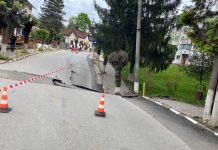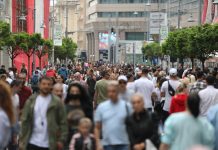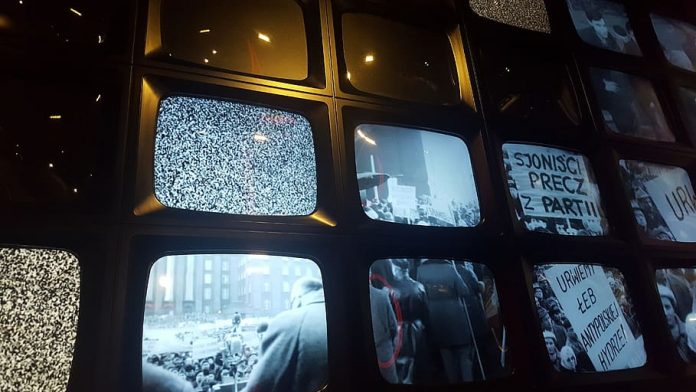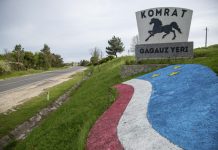The Elie Wiesel National Institute for the Study of the Holocaust in Romania says the coronavirus pandemic has led to an escalation of virtual antisemitism in Romania, and conspiracy theories about the Jews are rife again.
“In recent months, in the context of the COVID-19 pandemic, there have been articles claiming that Jews or Israel is behind the health crisis,” the government statement on Thursday said.
‘”This rhetoric combines economic antisemitism and the myth of the scapegoat.”
The Jerusalem post summed up global antisemitism in a May 6 editorial. “It is a story that dates back centuries: A crisis occurs and conspiracy theories emerge to offer one-size-fits-all explanations. More often than not, Jews are implicated. So, too, has it been during the COVID-19 pandemic.”
The Romanian institute’s statement said Facebook, the most popular social media network in Romania, hosted a number of groups with antisemitic content.
“Efforts…. to eliminate the content of this kind came to nothing as the content was camouflaged by changing words or using symbols and codes. They claim freedom of expression is being denied and put forward conspiracy theories that Facebook is controlled by Jews.”
“As well as fake news about the pandemic and the health crisis of recent months which is distributed online and goes viral, there are messages about the Jewish conspiracy which has provoked and is profiting from the pandemic,” the statement said.
Even before the pandemic spread to Romania in March, the Elie Wiesel Institute said it observed “with concern, online hate-mongering in Romanian against Jews. Online, particularly (on) Facebook, antisemitic and negationist messages have become violent and lead to virtual hate groups,” it said.
“There is a kind of critical approach toward any minority (especially ethnic and sexual minorities), Euroscepticism and anti-globalism,” the group said.
The study which covered the period of 2019 to April 2020, said there was a higher level of acceptance in Romanian society of Jews than Hungarians or Roma, but the “potential for antisemitism” existed in some parts of society.”
It said authorities had failed to properly investigate the vandalism of 70 Jewish graves in the northeast area of Husi, improbably concluding that two teens were responsible for the destruction in March 2019.
It said there was a tendency by some authorities to deny or trivialize the Holocaust, citing the case of a deputy mayor of Bucharest who wanted to erect a statue of pro-Nazi leader Marshal Ion Antonescu, a war criminal who deported Jews and Roma to their deaths during World War II.
A study conducted in October-November 2019 by same institute said one in three Romanians were aware the Holocaust occurred in Romania, but fewer knew that hundreds of thousands of Jews were deported to their deaths from Romania to Nazi-controlled areas outside the country, such as Trans-Dniester in the Soviet Union.
Romania made Holocaust denial illegal in 2015, making public denial of the systematic slaughter of Jews by Nazi Germany punishable by up to three years in prison. Public awareness about the Holocaust however remains low.
Between 280,000-380,000 Jews were killed on Romanian-held territory during World War II. Romania’s Jewish population plummeted from 800,000 before the war, to fewer than 10,000 today.
A study taken in 2015 and 2017 found just 39% of Romanians would accept a Jewish person as a family member.
During the presidential campaign last fall, opponents tried to associate President Klaus Iohannis, running for re-election, with Nazi symbols. Iohannis is an ethnic German.
The group said local authorities were dragging their feet over changing streets named after Antonescu, or removing monuments of him, despite laws that ban the practice of naming streets or public places after war criminals.
Investigations into Holocaust denial, or the sale of Legionnaire and Nazi merchandise drag on far too long suggesting a lack of interest, the statement said.
It said there had been instances of Holocaust denial under “the pretext of civic activity” such as protests over plans to build the National Museum for the History of Jews and the Holocaust.
It said posts made by Jewish groups generated antisemitic comments, and antisemitic articles were posted on Facebook. It said there was indirect antisemitism in the form of articles against the Hungarian billionaire George Soros.
“



















